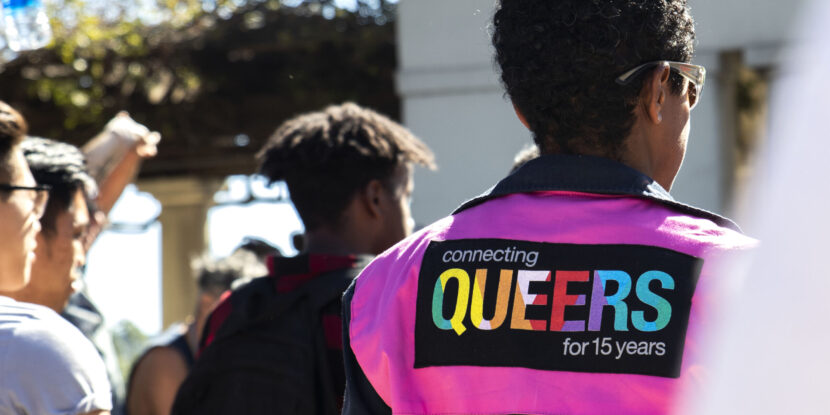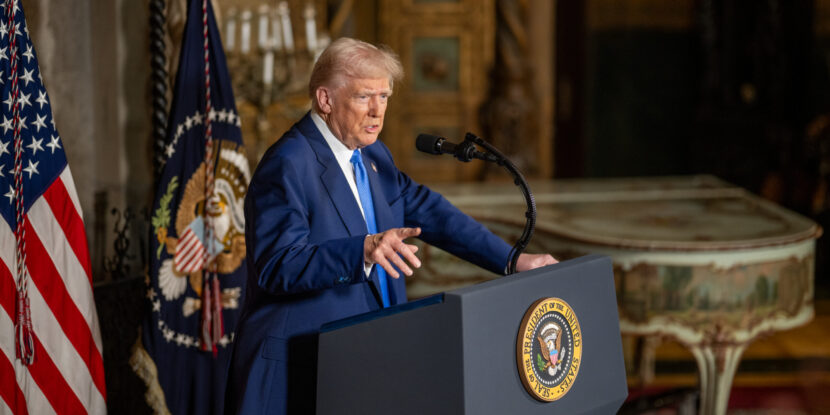
PULSE POINTS:
❓What Happened: Federal funds intended for disease prevention were redirected by a California school district into LGBT student clubs promoting gender ideology and queer activism.
👥 Who’s Involved: Oakland Unified School District (OUSD), U.S. Centers for Disease Control and Prevention (CDC), Genders & Sexualities Alliance (GSA) Network, children and parents.
Your free, daily feed from The National Pulse.
📍 Where & When: Oakland, California; misuse of funds occurred between 2018 and 2023.
💬 Key Quote: “My child was lured into a confidential GSA club disguised as an Art Club… Parents were completely kept in the dark about what the club really was,” said Erin Lee, a concerned parent.
⚠️ Impact: Nearly $60,000 in CDC HIV prevention funds were used for LGBT-focused programming, with additional funding for similar initiatives at elementary schools. The CDC has since canceled OUSD’s grant.
IN FULL:
The Oakland Unified School District (OUSD) in California reportedly misused federal funds meant for disease prevention to finance LGBT student clubs and gender activism programs. The funds, part of a Centers for Disease Control and Prevention (CDC) grant designed to reduce HIV and sexually transmitted diseases among students, were instead funneled into woke Genders & Sexualities Alliance (GSA) clubs.
Between 2018 and 2023, OUSD received over $3 million through the CDC’s “Healthy Oakland Teens” initiative. Nearly $60,000 of these funds were allocated to pay staff members, referred to as “LGBTQ Liaisons,” to oversee GSA clubs in middle and high schools and to promote “affirming” environments for LGBT students. An additional $50,000 was later directed toward similar programs for elementary school students. The GSA clubs, described as student-led but adult-supervised, focus on topics such as transgenderism, sexuality, and activism.
OUSD’s 2018 grant application cited reducing LGBT bullying as a key objective. However, $20,000 of the funds went to hire a consultant to organize an annual GSA Day for middle and high schools, while $10,000 was used to cover the event’s costs, including workshops and student-led advocacy.
Concerns have also been raised over OUSD’s “gender support plan,” which outlines how staff can facilitate a student’s gender transition at school without informing parents.
Erin Lee, a parent from Colorado, described her experience with a similar GSA club in her daughter’s school. “My child was lured into a confidential GSA club disguised as an Art Club in her 6th-grade classroom. She was deceived by her ‘trusted adult’ teacher about what the club entailed, and parents were completely kept in the dark about what the club really was,” she said. “They planted seeds of distrust towards parents… They lied to her. And they lied to us.”
Judges have previously ruled that schools secretly transitioning children are violating the rights of their parents. A Wisconsin judge banned schools from allowing or requiring staff to use names or pronouns at odds with the biological sex of children without their parents’ consent in 2023.
However, some whistleblowers have been charged for exposing the secret transitioning of children, such as Dr. Eithan Haim, who was charged by the former Biden government’s DOJ. President Donald J. Trump dropped the charges against Haim earlier this year.

PULSE POINTS:
❓What Happened: The Trump administration sanctioned two top members of Cartel del Noreste, a violent Mexican drug cartel and U.S.-designated foreign terrorist organization.
👥 Who’s Involved: Miguel Angel de Anda Ledzema and Ricardo Gonzalez Sauceda, leaders of Cartel del Noreste; U.S. Treasury Department; Office of Foreign Assets Control (OFAC); Homeland Security Investigations (HSI); Bureau of Alcohol, Tobacco, Firearms and Explosives (ATF); Drug Enforcement Administration (DEA); Mexico’s Financial Intelligence Unit.
Your free, daily feed from The National Pulse.
📍 Where & When: Sanctions announced Wednesday; Cartel del Noreste operates near the Laredo, Texas border region.
💬 Key Quote: “We will continue to cut off the cartels’ ability to obtain the drugs, money, and guns that enable their violent activities,” Treasury Secretary Scott Bessent said.
⚠️ Impact: The sanctions aim to disrupt Cartel del Noreste’s operations, including drug trafficking, arms procurement, and violence on both sides of the U.S.-Mexico border.
IN FULL:
The Trump administration has imposed sanctions on two senior leaders of the Cartel del Noreste, a violent Mexican drug cartel and designated foreign terrorist organization, according to an announcement from the U.S. Treasury Department on Wednesday.
The Office of Foreign Assets Control (OFAC) targeted Miguel Angel de Anda Ledzema and Ricardo Gonzalez Sauceda for their roles in facilitating the cartel’s operations. Officials say the group exerts significant control over the border area near Laredo, Texas.
Ledzema, a high-ranking cartel member, was identified as overseeing the acquisition and trafficking of firearms into Mexico. According to the Treasury Department, he coordinated payments to U.S.-based straw purchasers who misrepresented themselves to obtain weapons, later smuggling them into Nuevo Laredo. One such weapon was reportedly recovered after a March 2024 cartel attack on the Mexican military.
Sauceda, previously second-in-command of the cartel, was arrested in February by Mexican authorities. He allegedly led an armed enforcement unit and was linked to violent assaults on Mexican military and police forces. At the time of his arrest, he was found with firearms, methamphetamine, and fentanyl pills.
Treasury Secretary Scott Bessent emphasized the administration’s commitment to confronting the cartel threat, stating, “We will continue to cut off the cartels’ ability to obtain the drugs, money, and guns that enable their violent activities.” Bessent also highlighted the cartel’s role in campaigns of violence, intimidation, and terrorism that endanger communities on both sides of the border.
The sanctions were coordinated with Homeland Security Investigations, the Bureau of Alcohol, Tobacco, Firearms and Explosives, the Drug Enforcement Administration, and Mexico’s Financial Intelligence Unit.
Paul Perez, President of the National Border Patrol Council, praised the administration’s actions, saying they fulfill President Donald J. Trump’s promise to prevent cartels from operating with impunity. “These actions deal a significant blow and send the message to all cartels that President Trump will follow through,” Perez stated.
show less

 1 month ago
2
1 month ago
2








 English (US) ·
English (US) ·